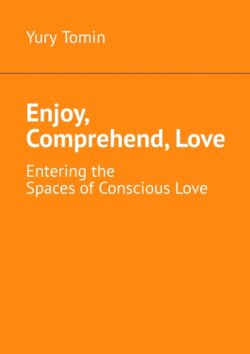Читать книгу Enjoy, Comprehend, Love. Entering the Spaces of Conscious Love - Yury Tomin - Страница 13
PSYCHOLOGY OF LOVE
Liking or Love
ОглавлениеFor a long time, specialization in the study of individual mental processes (emotions, feelings, thinking, behavior, etc.) that took shape in psychology did not allow approaching the study of love – this elusive feeling seemed too ephemeral and multifaceted. Zick Rubin of Harvard University was the first to dare to conceptually define the relationship of love and measure its parameters. In his 1970 article Measurement of Romantic Love, he proceeded from the premise that love is a special kind of interpersonal attraction that one person is aware of, feels and expresses in relation to another, in a similar way to already well-studied types of attraction, such as sympathy, admiration, respect.
On the one hand, Rubin tried to get away from too narrow definitions of love, such as emotion, need, a set of behavioral characteristics. On the other hand, he believed that one should not delve into the side of personal experiences or the experience of personal transcending since love is always directed to a specific object. What Rubin measured as romantic love, he defined as a relationship between peers of the opposite sex of the sort which could possibly lead to marriage.
The scales of love and of liking were developed to assess the quality of relationships. The basket of love includes such attributes of relationships as physical attractiveness, idealization, a predisposition to always be at the services of a partner, a desire to share emotions and experiences, a feeling of a partner’s exclusiveness and absorption by him, the need for unbreakable contact and a feeling of dependence, inconsistency (confusion) of feelings, the unimportance of generally accepted norms of relations. If the relationship did not reach the level of love but was based on mutual sympathy, then they were expressed in the desire to cooperate on certain issues, the perception of the partner as similar to himself, feelings of trust and respect, highlighting a number of partner’s advantages, the presence of an unspoken code of justice and responsibility in the relationship.
As a result, psychologists have learned to surgically separate love from the relationships that are connected only with sympathy. In addition, the following patterns were found: women more sharply separate feelings of love and sympathy than men; if there is love on women’s part, then it is usually mutual; in a relationship, women are more enthusiastic than men. To test the predictive power of the love scale, an experiment was carried out, which confirmed that lovers can be recognized by how often and for a long time they exchange glances.
Based on the research of Rubin, one can also assume with a high degree of probability that sympathy in terms of mathematical logic is a necessary condition for love. In our opinion, the key attributes of love that lie in the area of sympathy are trust and respect. In the frantic stage of love, they are present by default. They constitute, as it were, the natural background of relationships. In the stage of mature love, the loss of one of these feelings leads to the rapid extinction of love itself. As for the sufficient conditions for love, we can take as a basis what Rubin called the three main components of love: the need for unbreakable contact and a feeling of dependence (affiliative and dependent need), a predisposition to always be at the services of a partner (predisposition to help), a feeling of exclusivity and absorption of the partner (exclusiveness and absorption). He believed that these components embodied the conceptual conclusions about the nature of love of such respected scientists as Sigmund Freud (sublimation of sexuality), Harry Harlow (affection), Erich Fromm (caring, responsibility, respect, and understanding), Philip Slater (intimacy).
You can try to answer the questions on the scales of love and liking of Rubin by asking someone to put them to you in no particular order, and, for example, compare the total score.
